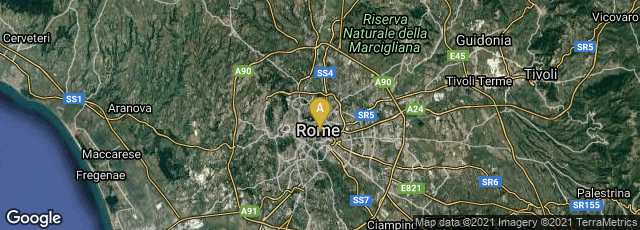

On charges of treason, Theodoric the Great, Ostrogothic ruler of Italy, executed Hellenist and philosopher Anicius Manlius Severinus Boëthius, who had risen to the office of Magister officiorum (head of all government and court services) in Theodoric's court.
The execution took place in 524 or 525, possibly because Theodoric suspected Boëthius's involvement in a plot with the Byzantine Emperor Justin I, whose religious orthodoxy, in contrast to Theodoric's Arian opinions, increased their political rivalry.
♦ The date of Boëthius's execution is often taken as a date for the onset of the Middle Ages.
"Boethius's most popular work is the Consolation of Philosophy, which he wrote in prison while awaiting his execution, but his lifelong project was a deliberate attempt to preserve ancient classical knowledge, particularly philosophy. He intended to translate all the works of Aristotle and Plato from the original Greek into Latin. His completed translations of Aristotle's works on logic were the only significant portions of Aristotle available in Europe until the 12th century. However, some of his translations (such as his treatment of the topoi in The Topics) were mixed with his own commentary, which reflected both Aristotelian and Platonic concepts.
"Boethius also wrote a commentary on the Isagoge by Porphyry, which highlighted the existence of the problem of universals: whether these concepts are subsistent entities which would exist whether anyone thought of them, or whether they only exist as ideas. This topic concerning the ontological nature of universal ideas was one of the most vocal controversies in medieval philosophy.
"Besides these advanced philosophical works, Boethius is also reported to have translated important Greek texts for the topics of the quadrivium.His loose translation of Nicomachus's treatise on arithmetic (De institutione arithmetica libri duo) and his textbook on music (De institutione musica libri quinque, unfinished) contributed to medieval education. His translations of Euclid on geometry and Ptolemy on astronomy, if they were completed, no longer survive.
"In his "De Musica", Boethius introduced the threefold classification of music:
1. Musica mundana - music of the spheres/world
2. Musica humana - harmony of human body and spiritual harmony
3. Musica instrumentalis - instrumental music (incl. human voice)" (Wikipedia article on Anicius Manlius Severinus Boethius, accessed 11-28-2008).
Note: "Boëthius" has four syllables; the o and e are pronounced separately. This was traditionally written with a diæresis, viz. "Boëthius," a spelling which has been disappearing due to the limitations of word processors.